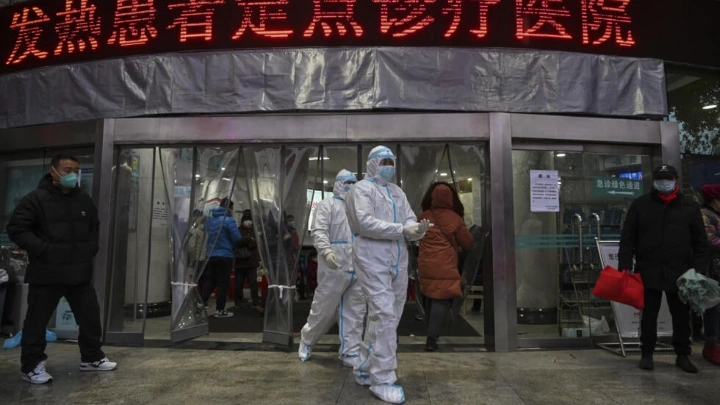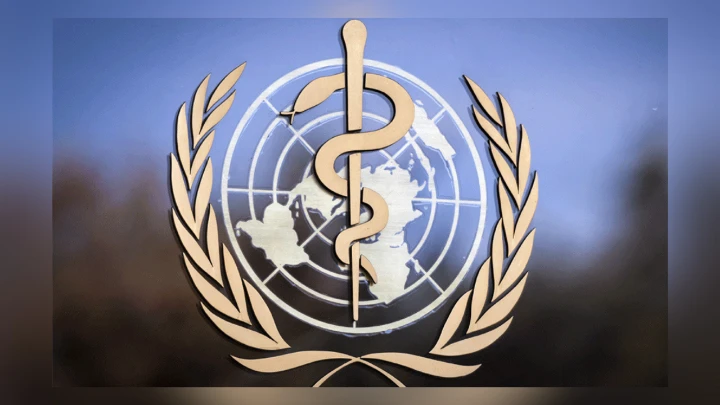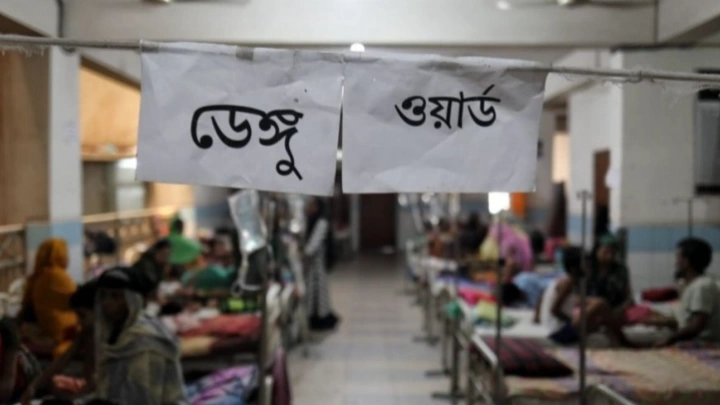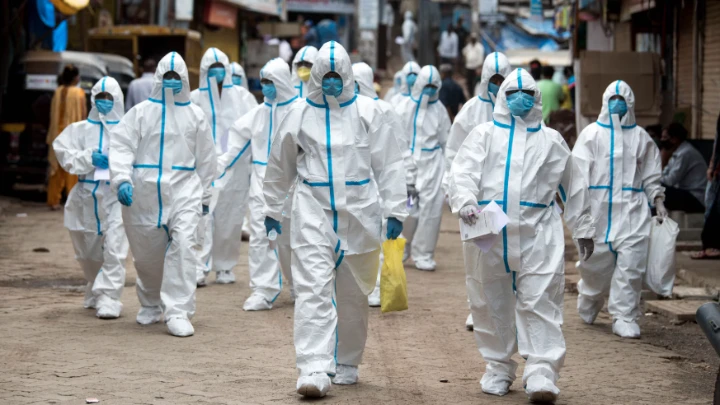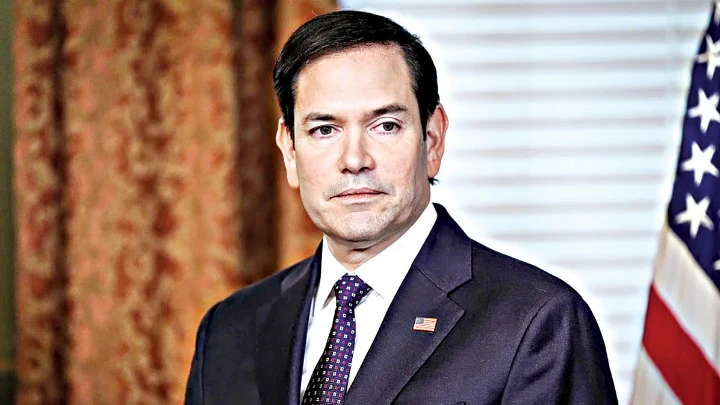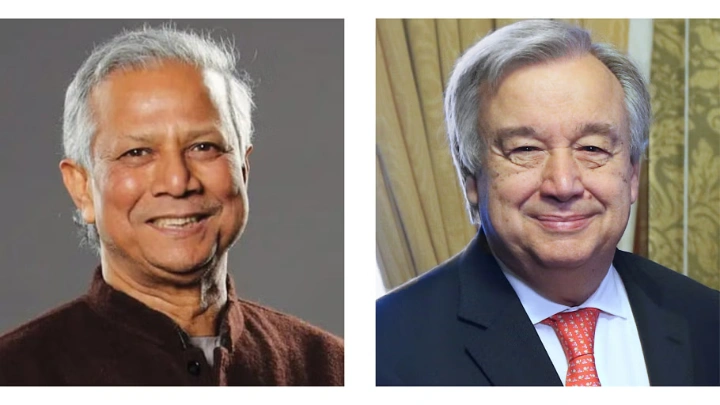Better we prepare as another pandemic coming soon: Prof Nitish Debnath
DailySun || Shining BD
In daily life, human-animal interactions can pose health risks due to the transmission of harmful bacteria, potentially leading to epidemics. Zoonotic diseases, like the Spanish flu and COVID-19, highlight this threat, exacerbated by climate change. With six out of ten infectious diseases in humans being zoonotic, the global push for One Health – a unified approach to human, animal, and environmental health – is gaining momentum.
In an exclusive interview with the Daily Sun’s Special Correspondent and Head of Online Moudud Ahmmed Sujan, former vice-chancellor of Chattogram Veterinary and Animal Sciences University and a prominent advocate for the One Health movement in Bangladesh, Prof Nitish Chandra Debnath discusses the movement’s genesis and progress in the country. As the chair of One Health Bangladesh and one of the 26 members of the One Health High-Level Expert Panel by four United Nations (UN) agencies, including the World Health Organisation (WHO), he underscores the vital need for collaborative approaches to mitigate future pandemics.
Daily Sun (DS): Could you share the origin of the One Health movement in Bangladesh?
Prof Nitish Chandra Debnath (NCD): When we started working on One Health in our country, there was serious concern regarding the outbreaks of two deadly infectious diseases. One was avian influenza or bird flu in 2007 – the impact of which was felt worldwide. Everyone assumed that since it was a virus, it would come from birds to humans and cause a global pandemic. Many even began to compare it to the Spanish flu (which caused 40-50 million deaths during 1918-19). In 2004, there was another outbreak of the Nipah virus in our country. It was observed that it started spreading not only from bats to humans through date palm sap, but also from person to person. At that time, I was serving as the vice chancellor of Chattogram Veterinary and Animal Sciences University. The farmers who were the victims of the bird flu outbreak used to come to us. We provided various science-based advice, such as culling birds and applying the policy-restricted movement of poultry birds, and various hygienic measures, including lime to the soil, to contain the spread.
However, we observed that more infectious diseases like these would emerge in the future. Therefore, to find permanent solutions, we can adopt a One Health approach. The concept of “One World, One Health” was first mentioned in 2004 at a symposium of scientists at Rockefeller University in the United States in 2004. Following this lead, we have been discussing and working on One Health at Chattogram Veterinary and Animal Sciences University. Since Chattogram is not the central part of the country, it is better for those in Dhaka, who are at the centre, to take the lead. In line with this continuity, I have had multiple meetings with Prof Mahmudur Rahman, the former director of the IEDCR (Institute of Epidemiology, Disease Control and Research), and Dr Steve Luby who was working at the icddr,b (International Centre for Diarrhoeal Disease Research, Bangladesh) at the time as the country director of US CDC, and is currently a professor at Stanford University. In this context, we organised a high-level discussion at the IEDCR in 2007, which involved the Department of Livestock Services, the Forest Department, and other stakeholders. Everyone agreed that due to Bangladesh’s dense population, widespread agricultural intensification, and diminishing forest lands, the country is at greater risk than less populous countries.
This is especially concerning due to the proximity between wildlife and humans and poorly managed market practices. Later, in 2008, a conference in Chattogram led to the decision to establish a civil society platform called “One Health Bangladesh” through the “Chittagong Declaration”. Advocacy continued until 2012. Subsequently, we developed the “National Strategic Framework for One Health and Action Plan in Bangladesh” in collaboration with relevant government stakeholders, academia and research organisations and UN agencies, including FAO, UNICEF and WHO. The strategy was then submitted to three Ministries – the Ministry of Health and Family Welfare, the Ministry of Fisheries and Livestock and the Ministry of Environment, Forest and Climate Change. Eventually, all these ministries endorsed the document and directed relevant agencies to implement the action plan, which was accepted by the government. In 2016, formal three-tier coordination mechanisms among the ministries were established, laying the groundwork for collaborative efforts on One Health in Bangladesh.
In 2016, the One Health Secretariat was established at the IEDCR. Since then, the secretariat has undertaken various initiatives, such as implementing joint surveillance methods for infectious diseases, creating a workforce, and arranging training for relevant personnel. These activities are being implemented in collaboration with different government agencies, development partners and other stakeholders, including One Health Bangladesh. The US CDC initiated Field Epidemiology Training programmes in Bangladesh through field-level collaborations.
So far, eleven One Health conferences have been held. Since 2016, these conferences have been jointly organised by the One Health Secretariat and One Health Bangladesh. These events attracted a significant number of participants, including representatives from various professions, as well as political leaders, from home and abroad to enhance their engagement in the field.
DS: What activities are being carried out globally regarding One Health?
NCD: It is interesting that after the onset of COVID, both domestically and internationally, there has been a robust advocacy for One Health. During COVID, G7 countries announced One Health as one of their agendas at the G7 Summit held in the UK. Similarly, G20 countries in their summit in Indonesia, emphasised that One Health programmes should be initiated immediately to combat future pandemics. The WHO strongly supports this initiative. The last G20 meeting held in India included the One Health programme in its final declaration.
Even at the Food Summit of the UN, it was unanimously agreed that the One Health approach is the ideal solution. Prime Minister Sheikh Hasina co-chaired One Health Global Leaders Group on Antimicrobial Resistance in 2021.
After the COVID pandemic, there have been three significant advancements in One Health:
The WHO is integrating One Health into pandemic response strategies. Additionally, discussions are underway regarding the adoption of the Pandemic Accord as a legally binding for Global Health Security. Moreover, the Pandemic Fund has been set up for low- and middle-income countries, supporting the initiation of One Health programmes in several nations.
Bangladesh had previously applied for the fund but encountered some shortcomings, resulting in its rejection. However, in 2024, Bangladesh is planning to reapply, joining several neighbouring countries also vying for inclusion in the fund. Efforts are underway to boost the annual $10 billion expenditure for the One Health project, as the previous pandemic agreement has transformed into an operational Pandemic Fund.
DS: What else is being done besides One Health?
NCD: Under the leadership of France, a separate fund has been created to assist the developed countries of the European Union known as PREZODE. In 2021, the UN formally announced its collaboration with One Health to address climate issues. Under the umbrella of the UN’s four agencies (Quadripartite finalised the “One Health Joint Plan of Action,” which will be implemented in countries around the world over the next five years.
Quote for highlights: Bangladesh must take significant steps in supporting and implementing the Joint Plan of Action for the country.
DS: What initiatives has Bangladesh taken to implement this plan?
NCD: In Bangladesh, a workshop was already held in February 2024 in collaboration with the WHO and the Quadripartite Initiative. Bangladesh must take significant steps in supporting and implementing the One Health Joint Plan of Action for the country. Very recently, the USAID approved a grant of $ 26 million to support System Strengthening for One Health (SSOH) in Bangladesh and it has embarked on its implementation in April 2024 in partnership with three ministries and their agencies.
Initially, One Health was an initiative of a few individuals, but now its scope has expanded. Political forums, UN forums, economic organisations, and many other entities have joined here. Therefore, we will be more capable of combating pandemics in future.
DS: Despite influenza, Zika, Nipah, and bird flu pandemics, it was observed that Bangladesh was unprepared for COVID. Where do you think our problem lies?
NCD: The issue stems from our system, which operates with a silo mentality. Each ministry functions independently, making it challenging to collaborate across different sectors. Despite claims of coordinated efforts, this cohesion is often lacking in practice due to entrenched silo-based laws, regulations, and budgets. Consequently, executing comprehensive plans becomes impractical. Currently, the emphasis is on proactive measures such as pandemic preparedness and disease prevention rather than reactive responses to outbreaks.
DS: Is there a new pandemic approaching shortly?
NCD: Scientists predicted the arrival of the pandemic long ago but could not pinpoint exactly when it would come. At one time, scientists said there would be a pandemic every 100 years. However, since 2009, we have seen many pandemics such as Swine Flu, Zika, and Ebola in Africa. Now it seems that we have entered into a pandemic era and we have to be prepared to face it any time. Scientists say another pandemic is coming soon. Therefore, it is necessary to prepare for its prevention as well as combating the disease promptly.
Now, weaknesses in dealing with the coronavirus pandemic have been revealed. Even the distribution of vaccines after their production has created problems. Solutions to such problems require the creation of funds or resources in advance.
Currently, scientists, international agencies and governments are actively working to counter the pandemic.
Shining BD






